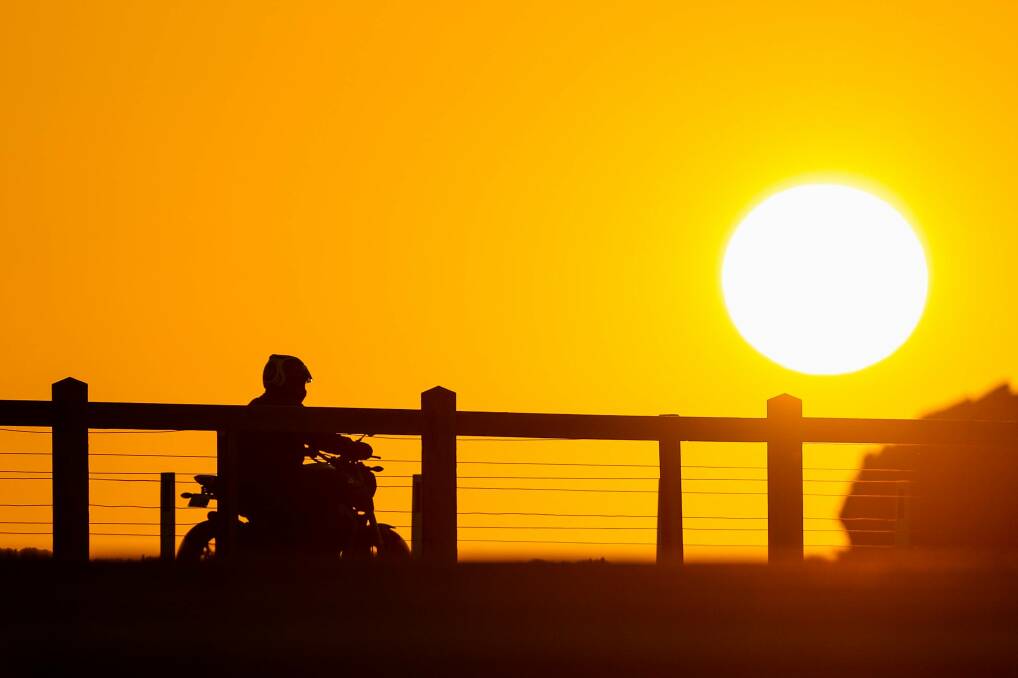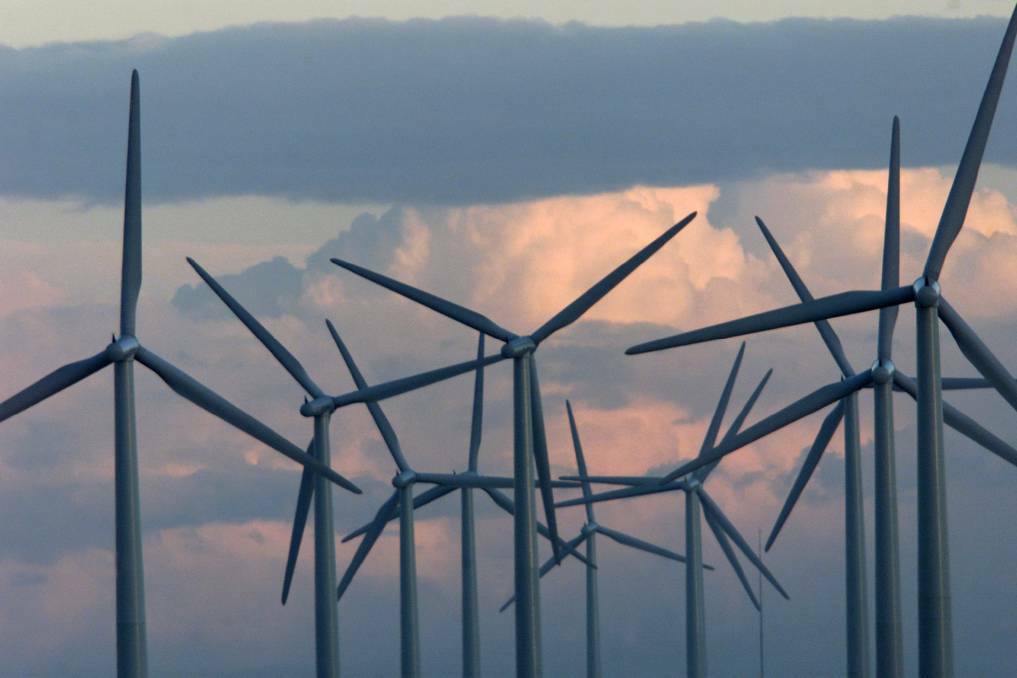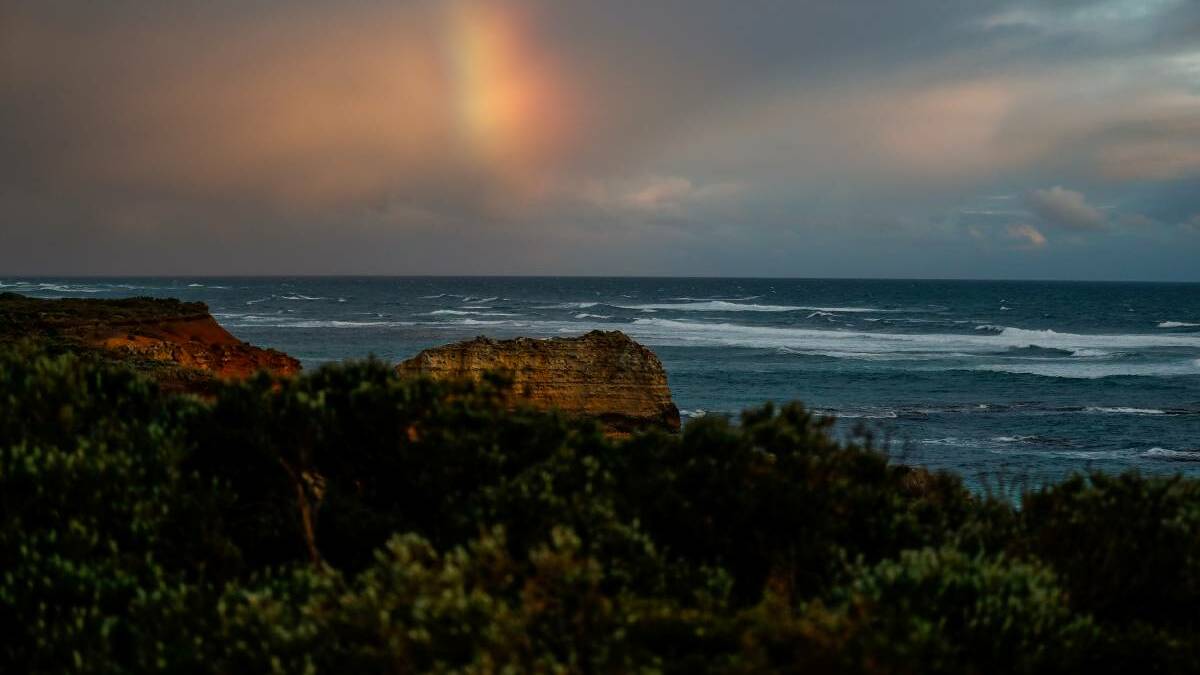
The eight candidates for Wannon have offered a range of views and approaches to tackling the existential threat presented by climate change, which has emerged as a key issue for local voters.
Subscribe now for unlimited access.
or signup to continue reading
Greens candidate Hilary McAllister offered the most ambitious plan for emissions reductions, followed by independent Alex Dyson and Labor hopeful Gilbert Wilson.
Incumbent Liberal MP Dan Tehan presented a much less urgent policy, while Liberal Democrats Party candidate Amanda Mead and United Australia Party contender Craige Kensen said the issue didn't warrant attention.
One Nation candidate Ronnie Graham and independent Graham Garner both suggested Australia should be burning more fossil fuels.
In recent years the Intergovernmental Panel on Climate Change - composed of the world's top climate scientists - has been producing increasingly dire reports on the warming trajectory of the planet.
The most recent IPCC report was released in three parts, with the first detailing how human-induced changes to the climate were passing a "point of no return", the second part investigating the wide-ranging catastrophic effects of those changes, and the third part showing how time has nearly run out for the global community to take meaningful action.
IN OTHER NEWS:
Over the past decade Australia has been singled out for its refusal to take stronger action on emissions reduction. In March this year the United Nations secretary-general labelled Australia a climate "holdout" after Prime Minister Scott Morrison declined to change the government's 2030 emissions reduction target at the Glasgow climate change conference.
Australia's current 2030 target is a 26 to 28 per cent reduction from 2005 emissions levels, which correlates with warming of between three and four degrees. A recent report from the Australian Academy of Science shows even three degrees of warming would kill 99 per cent of the Great Barrier Reef and reduce crop yields across the country by up to 50 per cent.
South-west Victoria won't be immune to the changes with milk and beef production certain to suffer as rising temperatures put livestock under stress and sporadic rainfall hits pasture growth.
CSIRO climate scientist Dr Leanne Webb also said increasing weather extremes would make crop failures more and more likely.
For a region that produces 28 per cent of the state's beef and 31 per cent of its dairy, worth more than $1 billion annually, any dent in production is bound to hurt. And it appears even the traditionally conservative Wannon voters agree with the scientists.

In The Standard's February pre-election reader survey the issues of environment and climate change emerged as by far the biggest concern for readers, with nearly half listing climate change as one of their top three election issues.
Meanwhile, a recent survey of 15,000 people across Australia found south-west Victorian voters overwhelmingly backed greater action to combat climate change.
In Wannon, 63 per cent of respondents said the benefits they would receive from greater action on climate change outweigh any costs involved.
It also found 64 per cent of people believed greater action on climate change would strengthen the Australian economy, while 60 per cent believed greater action on climate change by the federal government would be good for their health.
The latest economic modelling backs up this view, with research from the University of Melbourne calculating economic damages from climate change in Australia at $1.89 trillion over the next 30 years alone, while the cost of transitioning the economy to net zero by 2050 would be roughly $100 billion.
While the issue has taken a back seat to housing availability and cost-of-living pressures in the federal campaign, three quarters of Australia's top economists said it was the most important issue in the election. Wannon's federal candidates didn't all agree.
Mr Tehan, who has been in parliament for nine years the Coalition has been in power, defended the government's record on climate change.
"Our emissions are more than 20 per cent down on 2005 levels, while our economy has grown 45 per cent over the same period," he said.
Mr Tehan said Wannon was doing its "fair share" when it came to wind energy and that the government had invested $9 million into hydrogen technology research at Deakin University.

"Australia will achieve net zero emissions by 2050 in the Australian way," he said. Mr Tehan declined to say whether he agreed with Coalition colleague Matt Canavan, who said just two weeks ago the government's 2050 net zero target was "dead".
He declined to address his parliamentary voting record over the past decade, which showed he voted consistently against increasing funding for renewable energy, against funding the Australian Renewable Energy Agency, against increasing protection of freshwater resources, against government action on plant/animal extinctions, against increasing marine conservation, and against a faster transition away from fossil fuels.
Labor candidate Gilbert Wilson said his party had a 43 per cent emissions reduction target for 2030, roughly consistent with two degrees of warming, a level scientists said was "very likely to destroy the Great Barrier Reef".
Independent hopeful Alex Dyson wouldn't give an exact 2030 target, but aimed to "at least halve" emissions by the end of the decade. Mr Dyson said he had been inspired to run for parliament in 2019 after Mr Morrison brandished a lump of coal in the House of Representatives.
He said he thought Wannon punched above its weight for renewables and he'd aim to "keep the jobs here but also make sure the benefits flow through to the community" with lower electricity prices.
Greens candidate Hilary McAllister said hers was "the only party that actually have a policy that will keep global warming below two degrees", which was the level necessary to avoid the worst effects of climate change.
The Greens aim to hit net zero by 2035, with a 74 per cent reduction by 2030.
"We need to get off coal and gas and phase out those sources of power by 2030, but at the same time transition those workers into new jobs that will move Australia into a clean green renewable future," she said.
Ms Mead said she wanted to see nuclear power "on the table" and if elected she would lobby to remove energy subsidies, which she said would "relieve household budgets".
Mr Kensen said he didn't believe climate change was important to Wannon voters and believed moving away from fossil fuels would cause "economic problems".
Mr Garner also said he thought Australia should keep burning fossil fuels, and that emissions reduction targets needed "to be reassessed".
Mr Graham went further, arguing Australia should be increasing its coal mining and filling the coal mines with rubbish to solve the country's waste disposal issues.
Our journalists work hard to provide local, up-to-date news to the community. This is how you can access our trusted content:
- Bookmark https://www.standard.net.au/
- Make sure you are signed up for our breaking and regular headlines and newsletters
- Follow us on Facebook, Twitter, Instagram and LinkedIn
- Tap here to open our Google News page.
- Join our Courts and Crime Facebook group and our dedicated Sport Facebook group
- Subscribe
Now just one tap with our new app: Digital subscribers now have the convenience of faster news, right at your fingertips with The Standard:
Have you signed up to The Standard's daily newsletter and breaking news emails? You can register below and make sure you are up to date with everything that's happening in the south-west.















